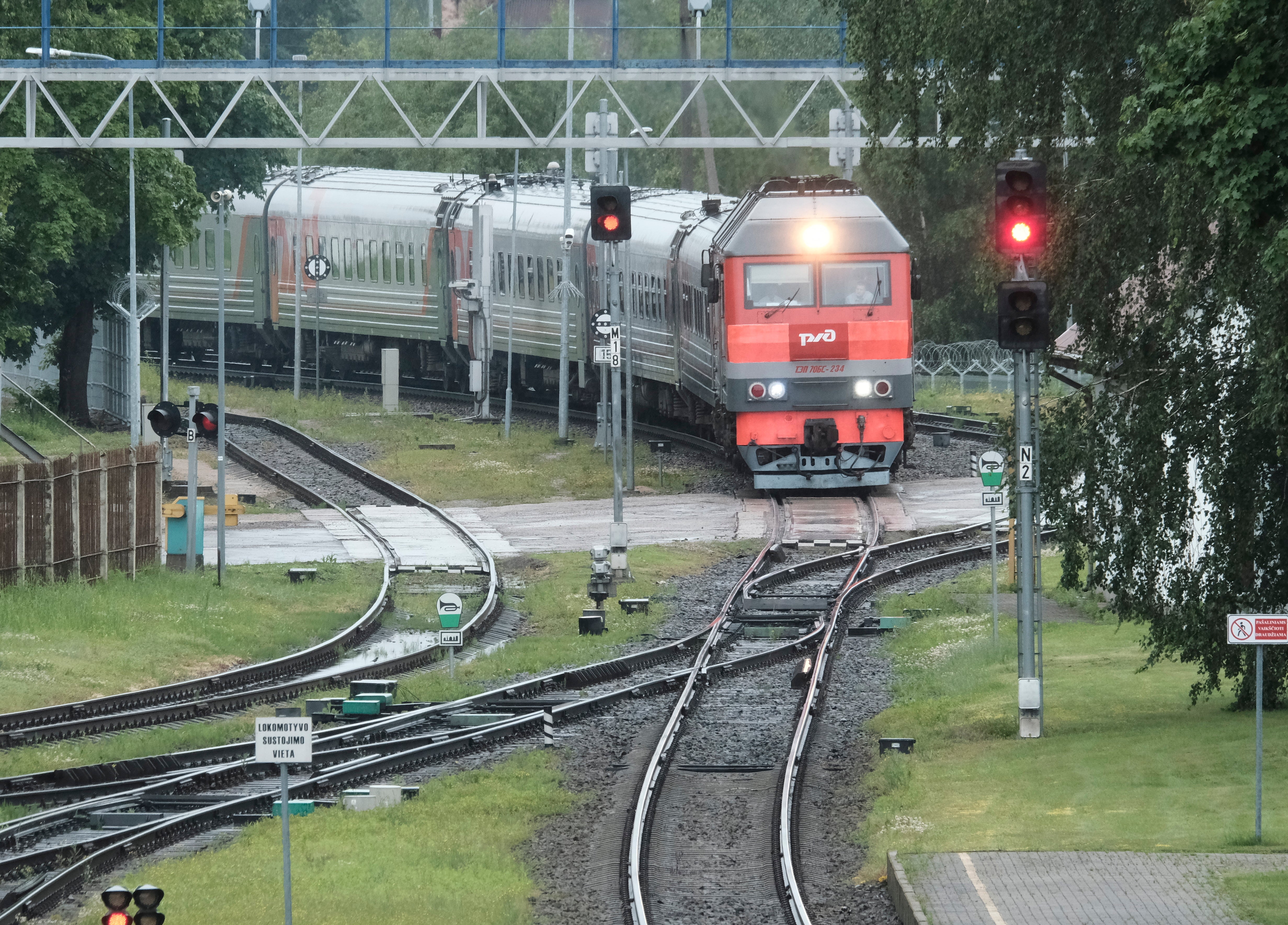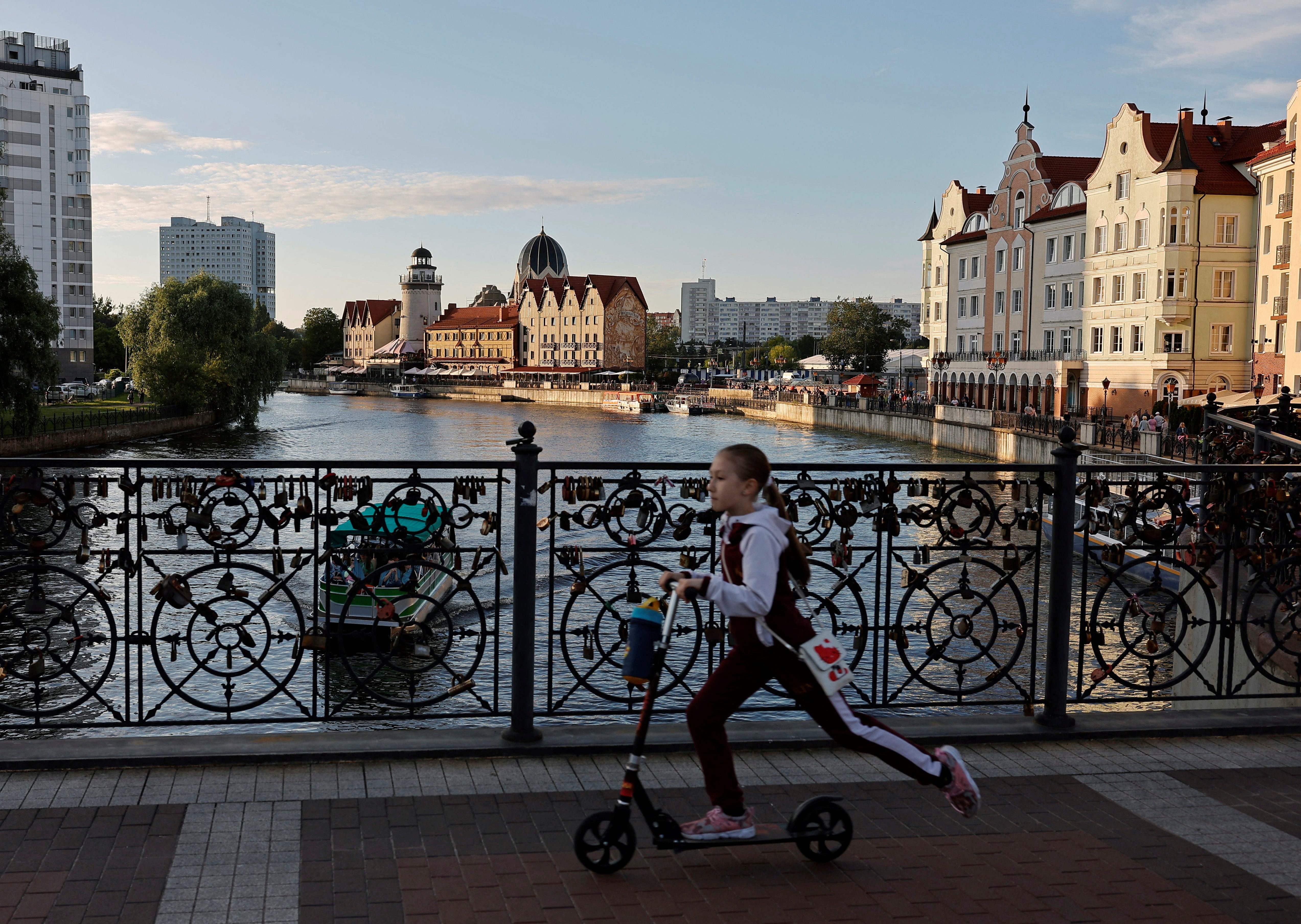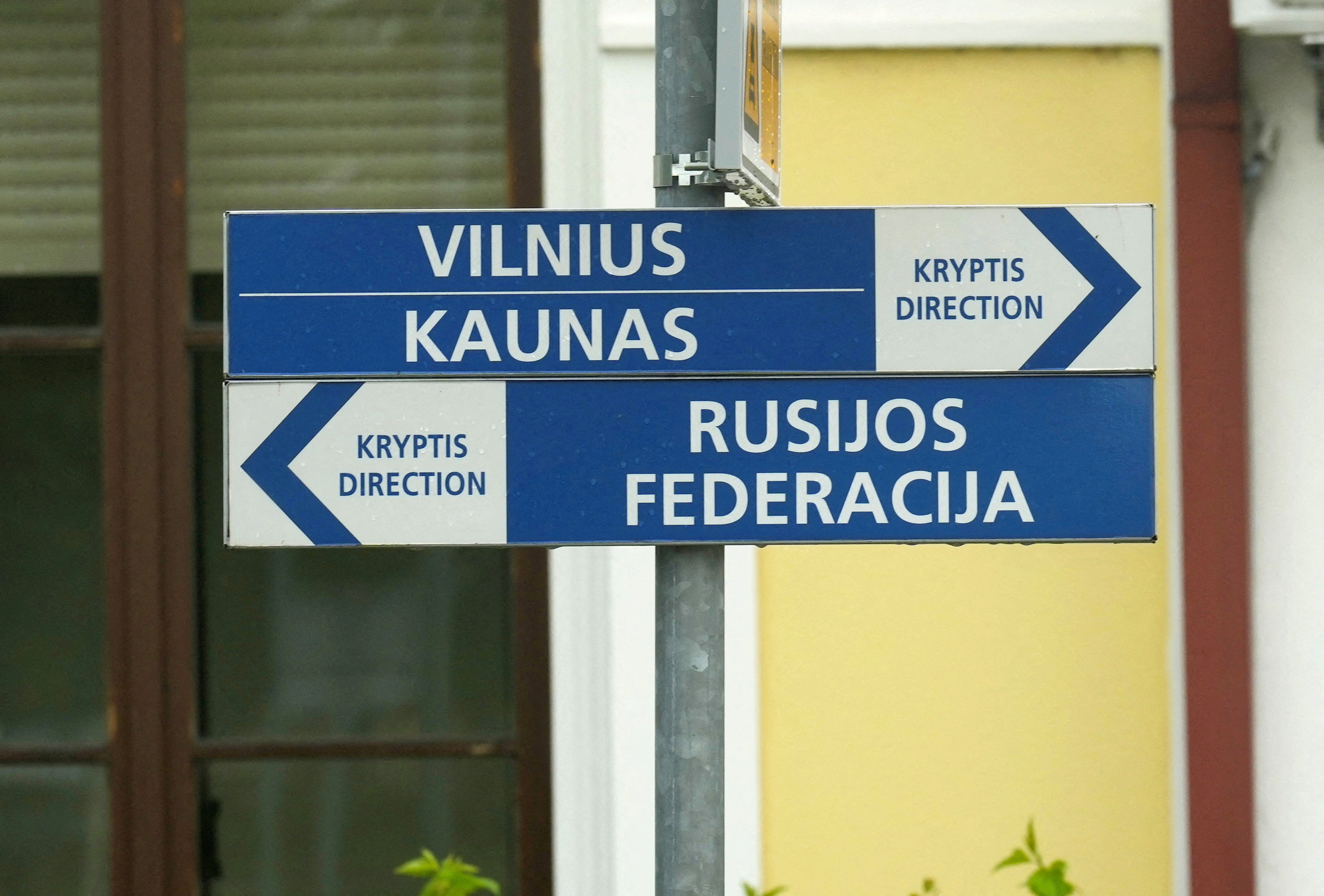How the Kaliningrad stalemate could get serious for Russia and the West
The Baltic standoff is a severe test of Russian nerve, says Sean O’Grady


Kaliningrad is one of Europe’s curiosities. Beached on the Baltic shore when the tide went out on the Soviet Union three decades ago, it is now an exclave of Russia, surrounded by Poland to the south and Lithuania to the north.
Before 1945 it was Konigsberg, in what was East Prussia, but was occupied by the USSR under the Potsdam carve-up of Europe.
Konigsberg’s German population was mostly expelled and the area was rebuilt and renamed after an old Bolshevik, Mikhail Kalinin. Today it is a city of about a million, an important year-round naval base for the Russian Baltic fleet and for other military facilities. It is of vital strategic importance to Russia, which is why the Kremlin hung on to it when the rest of its empire dissolved in 1991.
Now Lithuania is threatening to effectively cut Kaliningrad’s rail link and thus isolate it from the rest of Russia, all in the name of Western sanctions. About a half of what Kaliningrad imports from the motherland now passes through what amounts to hostile territory. The Kremlin is furious.
If Vladimir Putin wanted to invade Ukraine to make Russia great again, then being bullied by tiny Lithuania, once a small republic of the USSR and with a population of 2.8 million, has made the Russian president instead look rather foolish.
It is unthinkable that Lithuania would be able to impose such sanctions on its powerful neighbour were it not for its membership of the EU and Nato. It is also unthinkable that Lithuania would have been so bold without the acquiescence of Nato, which means the United States nodded it through. It feels as if a superpower clash is coming closer.

The standoff is a severe test of Russian nerve. The Kremlin has ominously promised unspecified consequences, and there will no doubt be some reaction – “Russia reserves the right to take actions to protect its national interests,” says the foreign ministry. Yet Russia cannot use force directly against Lithuania or Poland, even in concert with Russia’s loyal ally Belarus, without risking confrontation with the whole of Nato.
Russia and Belarus could make life more difficult for those travelling from Estonia and Latvia south through Kaliningrad and generally obstruct trade in the region, but that would be about it. It is not impossible that President Alexander Lukashenko, though a willing lackey of Putin, would balk at being dragged into a war with Nato if he allowed Russia to use his country as base for military action against Poland or Lithuania. Strangely, the butcher of Minsk might become an unlikely calming influence, if only because he knows how hated he already is by his own people and that he might not long survive a war with the West.
The context is the slow but obvious progress being made in eastern Ukraine by the Red Army. Though still poorly led and inadequately equipped, the Russians are slowly bringing to bear the sheer weight of numerical advantage in heavy artillery, pounding the Donbas into submission. Gaining territory allows them to tighten their stranglehold on the Black Sea ports and the huge stocks of grain awaiting export to help feed the world and dampen global inflation.

Thus, even if Russia dare not attack Poland or Lithuania, it can easily intensify the cruelty of its current campaign. The Kremlin can further restrict exports of oil and gas to the West and can weaponise wheat and sunflower oil by starving vulnerable nations in the Middle East, Asia and north Africa. The international pressure on the West to end the war and urge Ukraine to surrender would become intense, a new humanitarian crisis to add to the pile.
The most agonising of decisions for the West are still to come. For now, a flow of funds, intelligence, training and weaponry is helping Ukrainian forces withstand much of the Russian advance, but it looks insufficient to push the invaders back.
The question of Western war aims and possible escalation once again arises. What happens if the West wants to secure a safe route for grain and cooking oil out of Ukraine and the Black Sea, but Turkey is uncooperative and the Russians threaten a blockade?
In a struggle that is now almost a stalemate, both sides will seek to open new fronts to gain an advantage, and that is where the dangers of accidents and misunderstandings will proliferate.
Subscribe to Independent Premium to bookmark this article
Want to bookmark your favourite articles and stories to read or reference later? Start your Independent Premium subscription today.






Join our commenting forum
Join thought-provoking conversations, follow other Independent readers and see their replies
Comments